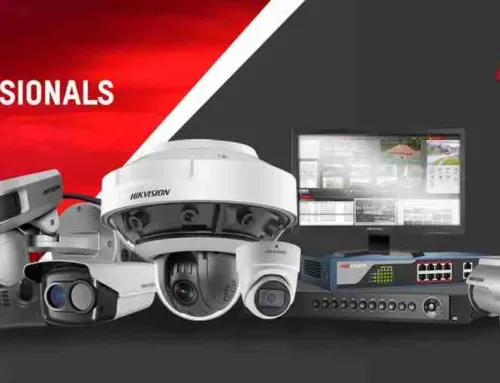Access Control Systems in Dubai
Access control systems in Dubai have become an integral part of enhancing security measures across various sectors, including residential, commercial, and industrial spaces. These systems are designed to regulate and monitor access to buildings, rooms, or specific areas, ensuring only authorized individuals can gain entry. Dubai’s rapid urban development and emphasis on smart city initiatives have driven the adoption of advanced access control technologies, such as biometric systems, RFID card readers, and cloud-based solutions. Companies and organizations in the region prioritize these systems to safeguard assets, streamline operations, and improve overall security management. With a focus on innovation and compliance with international standards, Dubai continues to lead in implementing cutting-edge access control solutions tailored to meet diverse security needs.
Introduction to Access Control Systems in Dubai
Access control systems are essential for managing who can enter specific areas within a facility. In Dubai, where security concerns are paramount due to its status as a global business hub, these systems play a critical role in protecting assets and ensuring the safety of individuals. The integration of advanced technologies has transformed traditional security measures into sophisticated systems capable of providing real-time monitoring and management.
The Importance of Access Control Systems
The significance of access control systems in Dubai cannot be overstated. They serve multiple purposes, including:
Enhanced Security: By restricting access to authorized personnel, these systems help prevent unauthorized entry and potential security breaches.
Asset Protection: Organizations can safeguard valuable assets, including sensitive information and physical property, through effective access control measures.
Operational Efficiency: Streamlined access processes reduce waiting times and improve overall workflow within facilities.
Compliance: Many industries in Dubai are subject to regulations that require robust security measures, making access control systems a necessity for compliance.
Types of Access Control System.
Access control systems in Dubai come in various forms, each tailored to meet specific security needs. Here are some of the most common types:
1. Keycard Access Systems
Keycard access systems use RFID technology to grant access to authorized individuals. Users carry a card that is scanned by a reader at the entry point. This system is popular in commercial buildings and hotels due to its ease of use and flexibility.
Advantages:
- Easy to issue and revoke access.
- Can be integrated with other security systems.
- Provides detailed access logs for monitoring.
2. Biometric Access Control Systems
Biometric systems use unique physical characteristics, such as fingerprints, facial recognition, or iris scans, to grant access. These systems are highly secure and are increasingly being adopted in sensitive areas like government buildings and data centers.
Advantages:
- High level of security due to unique biometric data.
- Difficult to spoof or replicate.
- Provides a seamless user experience.
3. Mobile Access Control Systems
Mobile access control systems allow users to gain entry using their smartphones. This technology leverages Bluetooth or NFC (Near Field Communication) to communicate with access control devices.
Advantages:
- Convenient and user-friendly.
- Reduces the need for physical cards.
- Can be easily updated or revoked.
4. Cloud-Based Access Control Systems
Cloud-based solutions provide centralized management of access control systems from any location. Users can monitor and manage access rights remotely, making it ideal for organizations with multiple locations.
Advantages:
- Scalable and flexible.
- Reduced hardware costs.
- Real-time monitoring and reporting capabilities.
The Role of Access Control Systems in Dubai’s Smart City Initiatives
Dubai is at the forefront of smart city initiatives, aiming to leverage technology to enhance the quality of life for its residents. Access control systems play a crucial role in this vision by integrating with other smart technologies to create a cohesive security infrastructure.
1. Integration with IoT Devices
Access control systems can be integrated with Internet of Things (IoT) devices, allowing for real-time data exchange and improved security management. For example, access control systems can work in tandem with surveillance cameras to provide a comprehensive security solution.
2. Data Analytics for Security Insights
By utilizing data analytics, organizations can gain insights into access patterns and identify potential security vulnerabilities. This information can inform better security strategies and improve overall safety.
3. Enhancing Visitor Management
Smart access control systems streamline visitor management processes, allowing organizations to efficiently manage guest access. This is particularly important in high-traffic areas such as corporate offices and event venues.
Implementation of Access Control Systems in Dubai
Implementing access control systems in Dubai requires careful planning and consideration of various factors. Here are some key steps involved in the process:
1. Assessment of Security Needs
Before selecting an access control system, organizations must assess their specific security needs. This includes identifying potential risks, determining access levels for different personnel, and evaluating the physical layout of the facility.
2. Choosing the Right Technology
Based on the assessment, organizations can select the most suitable access control technology. Factors to consider include the level of security required, budget constraints, and the scalability of the system.
3. Installation and Configuration
Once the technology is chosen, the installation process begins. This may involve installing hardware such as card readers, biometric scanners, and control panels. Proper configuration is essential to ensure that the system operates smoothly and efficiently.
4. User Training
Training employees on how to use the access control system is crucial for its success. Users should be familiar with the procedures for gaining access, reporting issues, and understanding security protocols.
5. Regular Maintenance and Updates
Access control systems require regular maintenance to ensure optimal performance. This includes routine inspections, software updates, and addressing any technical issues that may arise.






